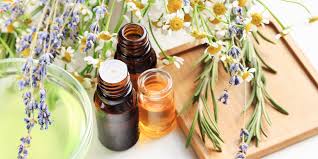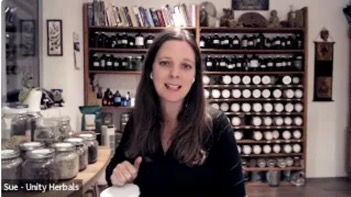Click here to watch this instructional video on YouTube
This talk was offered as a contribution to the The Canadian Herb Conference 2023.
Decoctions are medicinal drinks and/or broths made from heating or boiling plants in a menstruum, simply hydrolyzed in water or sometimes combined with other liquids such as soups, tea, milk, plant mylk, soup, tea or honey. They can be used to deliver a stronger tasting and sometimes richer drink than herbal infusions and for this reason they are a creative and delicious way to offer an herbal preparation. Soups and broths are a form of decoction, and adding herbs to food while cooking is a excellent way to offer this type of herbal preparation. A decoction can be added in to an alcohol extract (tincture), or combined with an infusion.
Generally it is the roots, rhizomes, bark, seed, berries and fruit of plants that are most effectively extracted when heated or boiled. Add your herbs to cold wter, bring to a boil and then simmer a decoction on low heat for 10-20 minutes. The harder the herb the longer the simmering time. Sometimes it helps to soak the herbs in cold water for up to 2-4 hours before applying heat to soften the herbs and aid in extraction. Usually one to three teaspoons of herb per cup of water is adequate, depending on the formula and therapeutic dosage. Concentrated decoctions can last 2-3 days in the refrigerator, or can be dehydrated to a powder or made into a syrup to preserve them longer, or preserved in 25-30% ethanol per volume.
Experiment with combinations of sweet, salty, pungent, sour and bitter to invent formulas that are palatable, nutritious, and medicinal combinations. Offset strong flavours by experimenting with dosage, dominant flavour profiles, warming and cooling qualities, as well as adding sweet herbs to help the medicine go down! The following is a list of herbs that work well in decoctions, and with a little practice all of them can be combined skillfully to taste delicious.
Roots and Rhizomes: Angelica root (Angelica archangelica), Ashwaganda root (Withania somnifera), Astragalus root (Astragalus membranacus), Burdock root (Arctium lappa), Chicory root (Cichorium intybus), Dandelion root (Taraxacum officinale), Dan Gui root (Angelica chinensis), Elecampane root (Inula helenium), Siberian Ginseng (Eleutherococcus senticosus), Ginger rhizome (Zingiber officinale), Hydrangea root (Hydrangea arborescens), Kava kava root (Piper methysticum), Licorice root (Glychrriza glabra), Panax ginseng root (Panax qinqufolium, panax ginseng) Sarsaparilla root (Smilax officinalis), Shatavari root (Asparagus racemosa), Turmeric root (Curcuma longa), Valerian Root (Valeriana officinalis), Wild Yam root (Dioscorea villosa), Yellow Dock root (Rumex crispus).
Barks: Cinnamon bark (Cinnamomum verum), Crampbark (Viburnum opulus), Wild cherry bark (Prunus serotina)
Seeds:Aniseed (Pimpinella anisum), Black peppercorn seed (Piper nigrum), Cardamom Pod/Seed (Elettaria cardamomum), Celery seed (Apium graveolens), Chocolate bean/seed (Theobroma cacao), Fennel seed (Foeniculum vulgare), Fenugreek seed (Trigonella foenum-graecum), Nutmeg seed (Myristica fragrans), Star anise seed (Illicium verum)
Fruits: Bilberries (Vaccinium myrtilus), Cayenne fruit (Capsicum spp.), Citrus fruit and peel (Citrus spp.), Elderberries (Sambucus nigra), Goji berries (Lycium barbarum), Hawthorne Berries (Crategus oxycantha), Schizandra Berry (Schizandra chinensis) Most berries!
Mushrooms: Lion’s Mane Mushroom (Hericium erinacea), Chaga Mushroom (Innotis obliquuis), Reishi Mushroom (Ganoderma spp.), All edible mushrooms!
Herbs to avoid in decoctions: Anything too bitter or too pungent (ie. Actaea racemosa, Artemesia spp.), anything leaf or flower (ie. Mentha x piperita, Matricaria recuitita), mucilaginous plants – heat kills the mucilage (ie. Althaea officinalis, Ulmus rubra).
Try my delicious Tao Cacao recipe: Combine equal parts powdered cacao, roasted chicory root, roasted dandelion root, licorice root, dan gui, shatavari, and ashwaganda. Add 1 tsp of each to 6 cups cold water, bring to a boil, simmer 5 minutes and add 1 cup coconut cream. Strain and serve as a warm, soothing, and balancing adaptogenic drink.
Why heat?
Heat speeds up and improves the extraction process, and is a good way to extract more from dense roots and barks.
Volatile oils disperse quickly and readily with heat, so Chamomile, Fennel, and Fenugreek will lose some of their medicinal quality with heat – anything that has a more aromatic quality with disperse it’s magic with heat so keep the lid on if you’re using these or infuse them in boiling water instead.
Slippery elm and marshmallow are rich in mucilaginous polysaccharides, so heat will also destroy these slippery components, which is the main use of these plants. They would therefore be wasted in a decoction.
Mushrooms and mushroom broths are excellent ways to extract the medicinal qualities of fungi. The betaglucans and glucosides in mushrooms readily extract in water, and heat will infuse more of their medicinal quality. Heating some mushrooms even makes them safe to consume, when they wouldn’t be otherwise! Eliminating poisonous constituents is sometime helpful, as in the case of cashews and most legumes.
Dosage:
Varies depending on the herb but 1 tsp of herb to 1/2 cup to 1 cup water is a good recipe. 30 grams (approx. 6 tsp or 1 ounce) in 750 ml (approx 3 cups) cold water, bring to a boil, then reduce the volume on low heat to concentrate. At least 1/4 fluid should be evaporated off, so make a quantity so that this is easy do, keeping the lid on to trap the oils and gases. I like to add a fat – cream, milk, or coconut cream are delicious options, plant or nut mylk can also enhance flavours. Experiment with this!
Note that fresh roots should be doubled in weight due to their higher water content, or reduce the amount of water used by approximately half to account for the water stored in the plant.
Storage:
Only a day or two in the fridge or your decoction is off! Preserve it a bit longer by making a syrup with 125 g of white granulated sugar for every 100ml of liquid decoction. Or dilute it with 25-30% 190-proof ethanol, and at least 50-75% concentrated decoction. Shake well, label it and store it somewhere cool. Decoctions are prone to going bad as decomposition of plant material can precipitate and cause spoilage.
___

Looking for a great coffee alternative?
I’m excited to present my newest hand-blended decoction: Root Brew. Root Brew is my newest small-batch formulation—an intentionally crafted blend of traditional medicinal roots designed to support detoxification, digestion, and hormone regulation. Each sip connects you to the earth with an organic blend of Dandelion, Chicory, Sarsaparilla, and Cinnamon Roots, with overtones of Cacao and Star Anise.
At the heart of its deep flavour is Sarsaparilla root (Smilax spp.), a well-documented botanical used traditionally to:
- Promote liver and lymphatic detoxification
- Bind and eliminate metabolic waste through saponin activity, reducing stagnation
- Support hormonal balance and skin clarity via modulation of inflammatory pathways
- Tastes a bit like the ancient traditional drink made of this root you might know – Root Beer!
To ensure each jar reflects a commitment to quality and professionalism, I partnered with Sticker Canada for our custom vinyl labeling. Their consistent print quality, fast turnaround, and durable materials help me present my products beautifully, and the vinyl stickers are washable and reusable so you can wash and refill your jar as many times as you like!





